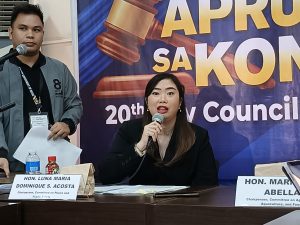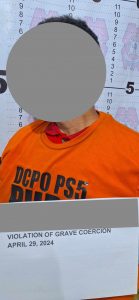THE Supreme Court has cleared former Davao del Norte Second District rep. Antonio Floirendo Jr. of graft charges, overturning the decision of the Sandiganbayan.
In its ruling on January 23, a copy of which was sent only on April 2, the Second Division of the Supreme Court ruled in favor of Floirendo, namesake-son of the founder of the Anflo Management and Investment Corp. and the Tagum Agricultural Development Co. Inc. (Tadeco),
Floirendo sought the reversal of the August 21, 2020 ruling of the Sandiganbayan convicting him of graft.
The case was filed against him by his erstwhile friend, then speaker and First District Rep. Pantaleon Alvarez who claimed in the case that the former benefited from the 2003 joint venture agreement between Tadeco and the Bureau of Corrections
In the Sandiganbayan ruling, Floirendo, who was his own witness during the duration of the case, was sentenced between six and eight years in prison with perpetual disqualification from public office.
But the High Court ruled that it could not accept the ruling of the graft court based on the view of the latter that a member of Congress violated the Constitution because he had a share in a company that had a contract with a government agency.
“The Constitution must not have envisioned such a myopic view, for members of Congress would be at the mercy of the Anti-Graft Law for their nominal shareholdings in just about any corporation in whose favor the Government has actually granted and will in the future grant contracts to, even without doing any act in relation to, nor benefitting from, the same,” the Supreme Court pointed out.
Of the members of the division, Senior Associate Justice Mario Victor Leonon, its chair, dissented on its ruling. Other members of the division are Associate Justices Amy Lazaro-Javier, Mario Lopez, Jhosep Lopez and Antonio Kho Jr.
In the previous ruling, the Sandiganbayan pointed out: “While members of the House of Representatives are not prohibited from having a direct or indirect financial interest per se, they are, however, prohibited from having a direct or indirect financial interest in any contract with the Government during the representative’s term of office.”
The mistake of Floirendo, the graft court added, was that he failed to divest his shares from the companies owned by his family.
The agreement which became the basis of the complaint was the renewal of the previous and similar agreements for another 25 years and was signed when Floirendo was still a lawmaker.
However, the Supreme Court accused the graft of “hastily” concluding “that because Tadeco and BuCor entered into the 2003 JVA with the objective of obtaining profits therefrom, then automatically, Floirendo Jr. was financially interested in the 2003 JVA by simply owning 75,000 shares in Tadeco and and 537,950 shares in Anflocor.”
It pointed out that the graft court “considered mere ownership of shares of stocks on the part of Floirendo Jr. to conclude that he has a financial interest in the 2003 JVA. For sheer lack of evidence to prove that Floirendo Jr. was financially interested in the 2003 JVA, the Sandiganbayan casually declared that Floirendo Jr. never denied his financial interest in the 2003 JVA. This is unfounded.”
The latest ruling added that the prosecution failed to present evidence that the then congressman “ obtained a monetary gain or benefit when the 2003 JVA was entered into with the government. In fact, Floirendo Jr. has consistently testified that he had no involvement in the negotiation of the 2003 JVA.”
The High Court added that due to the failure of securing evidence that the lawmaker gained out of the joint venture agreement, “this Court cannot say with certainty that he was financially interested in said contract granted by the government, which will catalyze the prohibitive effects of Article VI, Section 14 of the Constitution.”
“More importantly, the records do not show that Floirendo Jr. used his influence to push for the 2003 JVA. There is also no proof that he used his membership in Congress as a leverage to have the contract executed,” it added.





